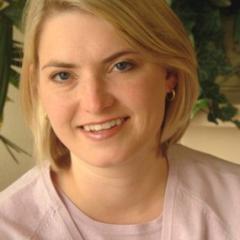
Volunteer of the Month: Cantor Julie Berlin
Julie Berlin is a graduate of HUC-SSM and currently serves Temple Beth-El in San Antonio, Texas.
In what capacity have you volunteered for the ACC? How did you get started? Did someone approach you?
I was a convention chair for the Minneapolis convention last year. Claire Franco asked me if I was interested in chairing and I was honored to do so.
What’s the most rewarding for you as a volunteer?
I like to help where I can. It was very interesting getting to know how things work in the ACC. You really don’t have a clue until you do something. I also enjoyed meeting new colleagues.
In your experience, what’s the best part of being a Cantor?
I think it’s working with the varied age groups and demographics. In one day I might visit seniors in their homes, and later lead Tot Shabbat. I enjoy the variety in my role, in the activities and the people. It‘s so funny how people who don‘t know, ask us on Shabbat, so what do you do the rest of the week? Before cantorial school, while studying to be an elementary school music teacher, I found I was using only my “teaching” singing voice and had no opportunity to really sing. Being a cantor is a good use of my skills and talents, and whatever else it is that I have, that I bring to the table.
What do you see as the biggest challenge facing the cantorate, looking into the future?
I think we not only need to be involved in every facet of congregational life, but of equal importance have to be our own advocates. In a tactful yet strategic fashion, we should insure that every member of our community is aware of our involvement, diversity of roles, and positive interaction with our Temple membership. This is something I’m collaborating with the president of my congregation on right now. And this applies to Rabbis too. I think congregants don‘t appreciate, or even knowhow much their clergy give up of their personal life to be a cantor or a rabbi.
What influenced you to become a Cantor?
Amy Brenner-Mitz and Mark Elson were cantors in the congregation where I grew up. I had a good relationship with both of them. I studied with Mark to become a bat mitzvah. Amy, who was a mentor, helped me chant Torah nearly once a month while I was in high school. I didn’t know that I wanted to become a cantor because it wasn’t really cool to hang out at Temple. But I think it laid the groundwork. When I met my husband in college, he made me feel it was ok to enjoy being Jewish, and that being a cantor would be a good role for me. Also, my mom and grandma went to Temple all the time. We celebrated the holidays. They were living role models for me. Everything they did showed me how to lead a good Jewish life; how to be a good person.
Tell us one thing about yourself that we might not know that you would want us to learn about you?
I was adopted when I was three days old. When I was growing up, my friends looked like their parents, and I didn’t; not that I cared that much, but I wanted to know who I looked like. So when I was twenty, I found my biological family. I always knew that I was given for adoption because my biological parents were only sixteen when I was born. It turns out they got married three years later and live 10 minutes from where I grew up. They had two more children who are my brother and sister. My mom and stepdad are good friends with them now and hang out with them and do things together even when I’m not around. I think that’s pretty cool. It’s been very interesting to me, because I can really see nature vs. nurture. It’s been fun to see how my kids are similar to my biological brother, sister, and parents. I feel blessed that I have them in my life.

